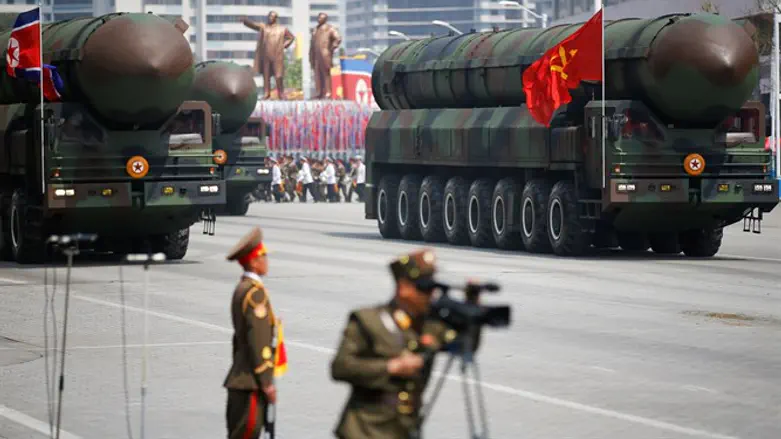
Last Wednesday, Israel formally took responsibility for having bombed a Syrian nuclear reactor near the eastern city of Deir Azzor back in 2007. The announcement shed light on the previously unrealized level of cooperation between Syria and North Korea, as the reactor had not only been sold by North Korea but was staffed exclusively by North Korean scientists.
According to a source within IDF intelligence, “it is safe to say that there was not a single Syrian who was able to manage the site”.
In fact, Israel had only become aware that the deserted building in the Syrian desert was manufacturing nuclear material after the Mossad drained the contents of Syrian Atomic Energy Commission head Ibrahim Othman’s personal computer, and found evidence that Othman had met with senior North Korean officials.
According to lecturer and North Korea expert Dr. Alon Lefkowitz, the relationship between Syria and North Korea has existed for decades, with North Korean pilots having joined their Syrian counterparts in bombing Israel during the 1973 Yom Kippur war.
“Relations between Syria and North Korea go back to the 1960’s and onwards,” said Lefkowitz. “At first they had an ideological collaboration. The leader of North Korea began supporting the movement of the non-aligned nations in opposing imperialism and supporting the movements against the superpower nations, such as supporting the different terrorist organizations and helping them over the years.”
According to Lefkowitz, while the Syrian-North Korean ties were founded on a joint anti-West worldview, they consolidated due to North Korea’s international isolation and substandard economy.
“Under the rule of Kim Il-sung, the founder and grandfather of the present ruler, their support to Syria was mainly ideological. Only later did it become financial,” contended Lefkowitz. “The financial support came due to competition mainly from the United States. North Korea was looking for means of income, and they found it mainly through exporting arms and nuclear weapons.”
The Syrian nuclear reactor was not the first time North Korea involved itself in the Arab-Israeli conflict. Former Mossad agent Michael Ross recalled in his book ‘The Volunteer’ how he and a co-agent were tasked with attaching a homing beacon on a North Korean ship that was transporting Scud missiles being sold to Syria in 1992. Then-Prime Minister Yitzhak Shamir ultimately decided not to bomb the shipment, fearing that the incident could deteriorate into another war between Israel and Syria.
Following the operation, Israel secretly negotiated with North Korea, hoping to covertly buy out their Middle Eastern missile exportation program. The negotiations fell apart due to US opposition, and Israel and North Korea have remained enemies ever since. Lefkowitz said that the significant distance between Israel and North Korea renders it difficult for the Jewish state to take direct steps against the country.
“You need to remember that North Korea is a very far away country, we can’t really do anything,” said Lefkowitz. “We’ve intercepted their shipments, but we never took direct action against North Korea besides for the negotiations in 2004.”